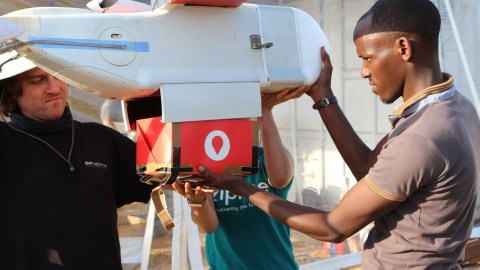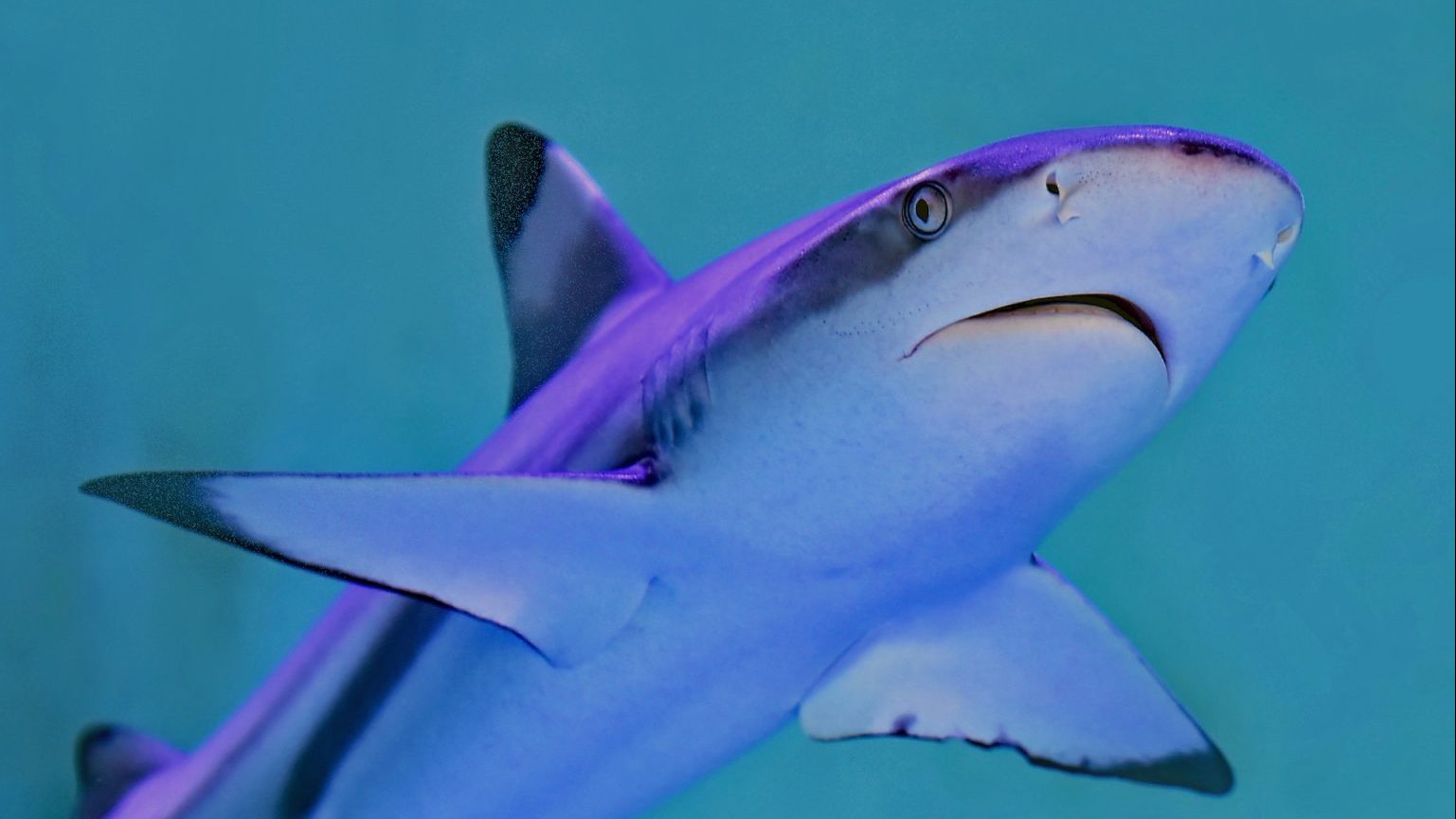10 reasons to be optimistic in 2019

Photo: STEPHANIE AGLIETTI/AFP/Getty Images
Even the optimists among us would have to admit 2018 was a challenging year. The fractured world that became the focus of our 2018 Annual Meeting a year ago came under further pressure from populist rhetoric and rising nationalist agendas. At the same time, the urgent need for coordinated global action in areas such as climate change, inequality and the impact of automation on jobs became more intense.
It might be easy, then, to take a dim view of our world’s prospects in 2019. But the new year brings opportunities, too; opportunities that – through a combination of innovation and responsible leadership – have the potential to make our societies stronger and our world more sustainable. Some of these opportunities have been made possible by the World Economic Forum’s platform for public-private cooperation. Building on the progress made in the past 12 months, here are some of the bright spots for the year ahead.
1) Saving our oceans: The world is waking up to our ocean plastic crisis. In response to our 2015 research predicting more plastic than fish in our oceans by 2050, many countries are now working on introducing bans on single-use plastic, including the EU which announced a ban on 10 items in late December. Since then, our focus has been on finding ways to stop the plastic that is produced from finding its way into the sea in the first place. Backed by a coalition of government and business as well as the World Bank, our Global Plastics Action Partnership will launch pilots in Indonesia and other countries in 2019 aimed at putting this expertise into practice.
2) Helping humans win: There’s a lot of justifiable fear out there that the Fourth Industrial Revolution will lead to a further hollowing out of the jobs that can only be performed by humans. The reality, according to our latest Future of Jobs
research, is more nuanced. There will be widespread displacement as a result of AI and other emerging technologies, but there will also be more jobs created; provided we can find the people with the right skills to perform them. In 2018, the Forum’s Closing the Skills Gap initiative, backed by 26 founding partners and a technology platform developed by Tata Consultancy Services, announced an aim to provide new skills to 10 million workers by 2020. Will this target be met? Expect an update on progress this coming month.
3) Living longer: it’s been estimated that 15% of all greenhouse gas emissions arising from human activity come from livestock production, with 40% of this alone coming from cows raised for either beef or dairy farming. What if we could reduce the environmental impact of the industry, reduce human deaths, improve the lives of the hundreds of millions of people worldwide that rely on livestock farming for a living and provide consumers with more choice? Groundbreaking research we will publish on January 3 will show us how.
4) Drones to the rescue: Unmanned aerial vehicles are now as synonymous with saving lives, boosting food security and driving economic growth as they are with their use on the battlefield. Rwanda is a pioneer in this space, using drones to deliver blood and save lives across the country. In 2018, we helped Rwanda become the first country to implement performance-based drone regulations that enable access to airspace for all sizes and shapes of drones – helping the government keep up with the rapid development of innovation in this sector, expanding how drones can be used, and providing a model for other countries. In June, this was followed with a demonstration of the world’s first nationwide unmanned traffic management system in Zurich with the launch of our new Drone Innovators Network. Our continued work in this area will improve the safe use of drones and accelerate socially impactful uses of this technology around the world.
5) Protection from pandemics: The outbreak of the Ebola virus in West Africa in 2014-16 demonstrated just how unprepared the world was for a major epidemic outbreak. Launched at our 2017 Annual Meeting, the Coalition for Epidemic Preparedness (CEPI) aimed to address this by funding development of vaccines before diseases erupt. Less than two years old, CEPI is already developing 15-20 vaccines including three – for Lassa Fever, MERS, and Nipah – that have been designated an urgent threat by the World Health Organization. In 2019 we should see more partners join the coalition and vaccines pursued for new diseases that pose a threat to human health, for example Chikungunya – a mosquito-borne virus whose name derives from a term meaning “to become contorted” – and Rift Valley Fever .
6) Boosting biodiversity: The World Wildlife Fund’s warning in 2018 that only drastic action can protect us from a sixth great extinction highlighted the scale of the conservation challenge we face. One approach to this is to incentivise humans to protect, rather than destroy, biodiversity. This was the goal of the Earth Bio-Genome Project, which was launched in Davos in 2018 to emulate the success of the Human Genome Project by identifying ways of unlocking economic value from keeping our natural world intact . Judging by early successes, it is clear that there need not be a conflict between protecting life on earth and pursuing economic growth.
7) Helping women win: We don’t just measure the global gender gap at the World Economic Forum, we actively try to close it. Working on the Forum’s platform for public-private cooperation, gender parity task forces in a number of countries including Chile, France and Argentina have a target to reduce their countries’ gender gaps by 10% within three years. Meanwhile, we now know much more about how vulnerable women in particular are to the workforce disruption that we expect to see in the Fourth Industrial Revolution. In 2019, efforts will be aimed at helping more women start careers in the jobs that we know will be most valuable in the future.
8) Powering the Fourth Industrial Revolution: all the gains in human and social progress promised by the Fourth Industrial Revolution will be worthless if we can’t figure out how to build the stuff we need responsibly and sustainably. How can we be sure that cobalt, that critical ingredient of lithium-ion batteries for example, has not been extracted by child labour? Or what the impacts on our health or environment are of the 50 million tonnes of electronic waste we produce each year? In 2019, our Global Battery Alliance will step up a gear in its quest to ensure our low-carbon future comes with as few human and environmental side-effects as possible. In January we will also publish new research, and some exciting ideas, on how to tackle the scourge of e-waste.
9) Ending illegal fishing: Industrial-scale fishing operations in marine protected areas are not only disastrous from a biodiversity perspective, they also ruin the livelihoods of the hundreds of millions of people worldwide that rely on the oceans for their income. The Forum’s Friends of Ocean Action will be actively seeking to turn the tables on illegal fishing in 2019, inaugurating a new technology platform and building the political will to make it harder to land catches from marine protected areas.
10) A new kind of diplomacy: With our current international architecture under pressure from a changing, fragmented world, the pressure is on to find ways for governments to work together without compromising their own national interests. If recent developments in the Western Balkans are anything to go by, the Forum’s platform approach could be one such model. From an initial meeting in Davos in 2018, the region’s leaders followed up with subsequent meetings in Sofia and Geneva. By focusing on areas of mutual concern such as curbing the region’s brain drain and preparing for the Fourth Industrial Revolution, a new spirit of cooperation is taking hold.





